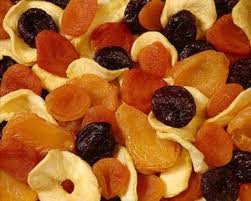Published Spring 2002 | Updated August 2024
Eretz Yisroel has the unique privilege of being the recipient of the Ribono Shel Olam’s brachos throughout the year. Its agricultural industry continues to grow and flourish. Consumer products from Israel that are exported to the American marketplace include Jaffa oranges, grapefruits, pomelos, clementines, carrots, parsley, Carmel and canned tomatoes, peppers, candies, jams, jellies, olives and pickled products. Industrial products used for manufacturing include tomato sauce, tomato paste, orange oil, lemon oil and spices.
Besides for all the ingredients and processing concerns which confront the kosher consumer, additional kashrus requirements apply to foods grown, produced or imported from Israel. A consumer must be sure that terumos and ma’asros have been properly separated before eating, and that the fruits do not come from trees that are orla or neta revai or shemita.
What Are Terumos and Ma’asros?
Terumos (literally, separations) and ma’asros (literally, a tenth) were compulsory […]







 STAR-D
STAR-D STAR-S
STAR-S